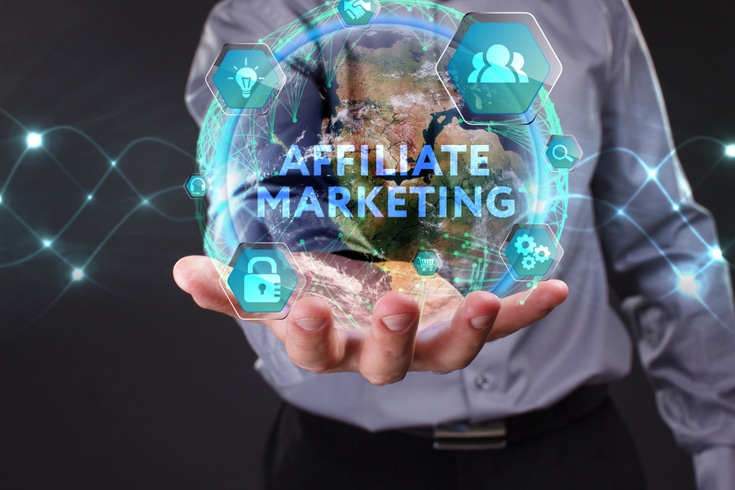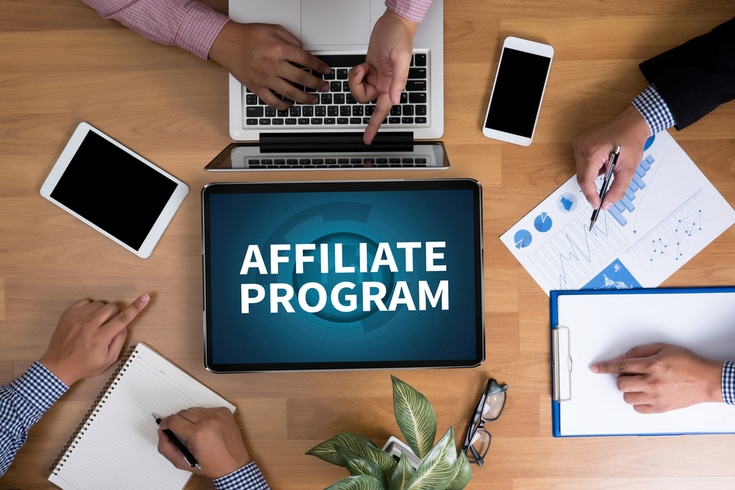Legal Issues that Operators of Affiliate Model Media Should Be Aware Of

Affiliate marketing is one of the effective ways to promote a company’s products or services. Consumers tend to value word-of-mouth when purchasing products or services, and recently, there has been an increase in searching for reviews and testimonials on the internet. Affiliate sites often provide detailed impressions of the use of products or services, which are frequently referred to by consumers.
When a product or service introduced via an affiliate site is purchased, the site operator receives a performance reward through an Affiliate Service Provider (ASP) or similar. Sites that appear at the top of search engine results tend to earn larger rewards for their operators, so it is expected that the number of new media entering the market will increase in the future.
On the other hand, affiliate sites serve as advertising media for products and services. Therefore, it is necessary to ensure that the content of the articles posted does not violate the law.
This article explains the legal issues that should be checked when operating a media business with an affiliate model.
What is an Affiliate Site?

An affiliate site refers to a web media that incorporates the mechanism of affiliate marketing. Affiliate marketing is a system where a company has its products or services promoted on an affiliate site operated by a third party. When a certain level of results is achieved, such as a viewer purchasing a product or service or requesting information via the affiliate site, the company pays a performance-based reward to the site operator.
While companies can directly contract with the operators of affiliate sites, in many cases, this is done through intermediaries called Affiliate Service Providers (ASPs). The operators of affiliate sites register with an ASP and choose which products or services to promote from the affiliate programs introduced by the ASP. When results from the affiliate marketing are achieved, the performance-based reward is paid through the ASP.
Legal Issues in Affiliate Sites
When operating an affiliate site, it is particularly important to understand the laws related to the content, such as articles, posted on the site. Below, we will explain the issues that are likely to become problematic.
Issues Regarding the Japanese Premiums and Representations Act
Regulations of the Japanese Premiums and Representations Act
The Japanese Premiums and Representations Act regulates the provision of premiums and the representation of goods or services. The issue that arises on affiliate sites is the latter, the regulation of representation. If goods or services are represented to appear better than they actually are, consumers may mistakenly purchase inferior products, resulting in potential harm.
The Japanese Premiums and Representations Act regulates such misrepresentations about the quality, content, price, etc. of goods or services. The regulations on representation can be divided into the following three categories:
- Misrepresentation of Superior Quality: Unfair representation regarding the quality, standards, or other aspects of goods or services
- Misrepresentation of Advantageous Conditions: Unfair representation regarding the price or other transaction conditions of goods or services
- Other Potentially Misleading Representations: Unfair representation designated by the Prime Minister as potentially misleading to general consumers
Points to Note in Affiliate Marketing
To conclude, the Japanese Premiums and Representations Act does not directly apply to affiliate sites. The Act applies to the representation of goods or services “provided by oneself”, and does not apply to the representation of goods or services provided by others. The content posted on affiliate sites pertains to goods or services provided by other companies. Therefore, it is currently believed that affiliate sites are not subject to the Japanese Premiums and Representations Act.
However, just because the Act does not directly apply, it does not mean that it is permissible to post exaggerated or baseless false content. Care should be taken not to fall into the categories of misrepresentation of superior quality, misrepresentation of advantageous conditions, or potentially misleading representations under the Japanese Premiums and Representations Act. Specifically, the following three points should be noted:
- Ensure that the content is not exaggerated (and is backed by evidence)
- Ensure that the content does not contain information that cannot be proven to be an objective fact
- Ensure that the content does not contain expressions that may be perceived as advantageous compared to other companies based on unproven facts or information
For example, expressions such as “This product is essential for life” may be considered exaggerated. Also, expressions like “Many people say that Company B is better than Company A” need to be careful unless they are based on the results of surveys or similar, as they may be perceived as advantageous compared to other companies based on unproven facts or information.
Issues Regarding Copyright

While not limited to affiliate sites, copyright often becomes an issue in the operation of web sites. We will explain the points to be particularly careful about regarding affiliate sites.
Text Copy-Pasting & Plagiarism
Regarding the text part of web site content, so-called copy-pasting and plagiarism become issues. Reprinting sentences from other people’s web sites or books without any notice infringes on the copyright of the third party who created the text, so be particularly careful.
If you want to use a text created by someone else on an affiliate site, you need to follow the rules regarding citation under copyright law. Regarding citation, it is important to limit it to the extent necessary in the context and to clearly indicate the source.
The points to consider when quoting someone else’s text are as follows:
- Use only when the quote is necessary in the context of the text (for example, when quoting makes it easier to convey accurate information)
- Do not rewrite the context of the quote and implement it in a way that clearly shows that it is a quote (currently implemented with blockquote tags)
- Explicitly state the source and, if it is a web site, provide a link
- Ensure that the majority of the article (more than 50%) is not quoted text
For more detailed explanations about quoting other people’s works such as images and texts, please refer to the following article.
https://monolith.law/corporate/quote-text-and-images-without-infringing-copyright[ja]
Images
Affiliate sites often have opportunities to use images that match the content. When receiving images from third parties such as writers, it is necessary to check whether the image is original using Google Image Search or similar tools.
Also, when using paid image provision sites, it is important to carefully check the terms of use and confirm that the use is within the scope allowed by the terms. In particular, be careful not to use the images outside the site you are contracted with.
In addition, you may also use free images that can be used for free. As there may be usage conditions for free images, sufficient confirmation is necessary. For more details on using free materials, please refer to the following article.
https://monolith.law/corporate/points-of-using-free-materials[ja]
In addition to the above, when using API images from Instagram or YouTube, it is important for the operator of the affiliate site to check the content of the image, not just quote it as is.
For Instagram images, you generally cannot use images that include personalitys, celebrities, or other companies’ advertisements. If you post such images on an affiliate site, you may receive a claim from the rights holder of the personality, etc.
Also, on Instagram, the poster may post a selfie. For images that can identify individuals or show a person’s room, you need to obtain permission from the individual. Therefore, it is safer not to use them except when absolutely necessary for the article. However, you can use images that do not necessarily identify individuals, such as those where half of the face is hidden.
For more detailed explanations about the copyright of images posted on SNS such as Instagram, please refer to the following article.
https://monolith.law/reputation/copyright-property-and-author-by-posting-photos[ja]
In addition, it is generally better not to insert API images into articles with negative information. For example, a case where a person’s Instagram image is used in an article that suggests aging, such as wrinkles.
Also, for YouTube videos, be careful not to use affiliate sites for videos that use images or sound sources from commercials or broadcast programs, as they may infringe on copyright.
Also, while videos with other companies’ credit displays are not illegal in themselves, there is a non-zero risk of being sued if they are repurposed for an affiliate site. Therefore, it is generally better not to use them.
Screenshots

The handling of screenshots varies depending on the purpose of use. Screenshots for private use, other than videos and music, are considered legal under current law.
However, articles on affiliate sites are published for commercial purposes, so they cannot be considered for private use. Attaching screenshots for purposes other than private use to articles is illegal. Therefore, you need to consider that you cannot use screenshots of products, etc., on affiliate sites.
Issues Regarding Morality
In addition to the above, it is advisable not to publish articles that are against morality, even if they are not necessarily legal issues. This is because articles that violate morality may risk receiving complaints from third parties or becoming the subject of online backlash.
For example, expressions that may make the reader feel uncomfortable, such as “People with dirty teeth are seen as unclean,” should be avoided. Also, expressions that degrade the quality of products or services handled by other companies may potentially be considered as defamation. Furthermore, it is not desirable to intentionally aim for incorrect clicks from viewers in the way advertisements are displayed.
Summary
Regrettably, affiliate sites often stand out for having inaccurate information or for plagiarizing content from other sites. Content related to specific fields such as medicine and law can potentially cause health damage or financial loss to viewers, and as a result, affiliate sites tend to be excluded from Google search results.
Therefore, providing high-quality content that is not illegal is becoming an increasingly important issue for operators of affiliate sites. Affiliate marketing has its own unique legal issues, so we recommend consulting with a law firm that is knowledgeable in IT-related matters.





















